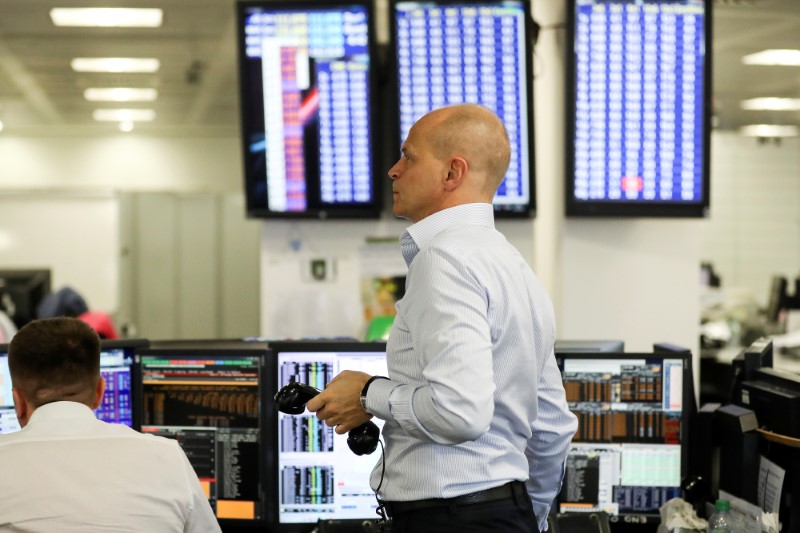S&P 500 struggles for direction as investor await inflation data
Investing.com -- Citigroup (NYSE:C) expects global equities to remain range-bound into year-end, before seeing more meaningful gains through mid-2026.
The bank sees the MSCI All-Country World Equity Index index rising about 5% from current levels, supported by steady, albeit below-consensus, earnings growth and stable valuation multiples.
The outlook for 2025 earnings has been revised down amid persistent geopolitical and trade-related risks. Citi’s top-down forecast now calls for 5% earnings per share (EPS) growth this year and 11% in 2026, compared to bottom-up consensus estimates of 8% and 13%, respectively.
“The first half for 2025 has been shaped by extraordinary macro shocks, but global equities have nevertheless climbed back towards all-time highs,” Citi strategists said in a Friday note.
“Heading into 2H25, the market setup feels somewhat familiar,” they added.
The team remains cautious about the potential fallout from U.S. tariff policies, particularly with new measures targeting Japan, Korea, and other countries set to take effect August 1.
They note that “tariff risks are still very much in play,” warning that even baseline scenarios could pressure earnings through margin compression and reduced demand.
Even so, market pricing remains relatively optimistic. Citi points out that “markets have taken President Trump’s latest announcements in stride,” suggesting confidence that further escalation may be avoided.
Still, they argue that risks are not fully priced into earnings estimates in regions such as Japan, where projected tariffs could cut EPS by as much as 7%.
In terms of positioning, Citi prefers European equities, where they see room for upgrades due to stepped-up fiscal spending and what they describe as “cracks in U.S. exceptionalism.”
The bank’s view on U.S. equities remains Neutral, while Japan has also been downgraded to Neutral due to near-term tariff exposure and yen strength. Emerging markets and Australia are rated Underweight.
“Ultimately, we see rangebound markets to year end, but pencil in 5% upside for the MSCI AC World to mid-26,” strategists wrote. “This will be supported by below-consensus, but still solid, EPS growth and little change in valuation multiples."
Valuation-wise, the MSCI AC World is now trading at a 12-month forward price-to-earnings (P/E) of around 18.5x.
The U.S. remains the most expensive market at 22x, near its historical highs, while the U.K. and emerging markets are the cheapest at 13x, though not significantly below their long-term averages.
Over the medium term, Citi’s price targets in Japan and Europe imply the most upside.
By sector, Citi maintains Overweights in Technology, Financials, and Utilities, the latter seen as a defensive play with earnings momentum and a potential beneficiary of AI-driven infrastructure trends. Consumer sectors are Underweight amid weaker earnings trends.
